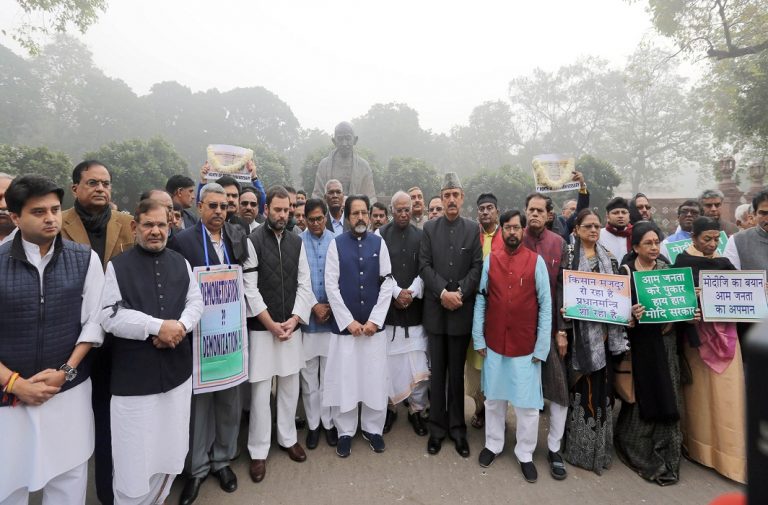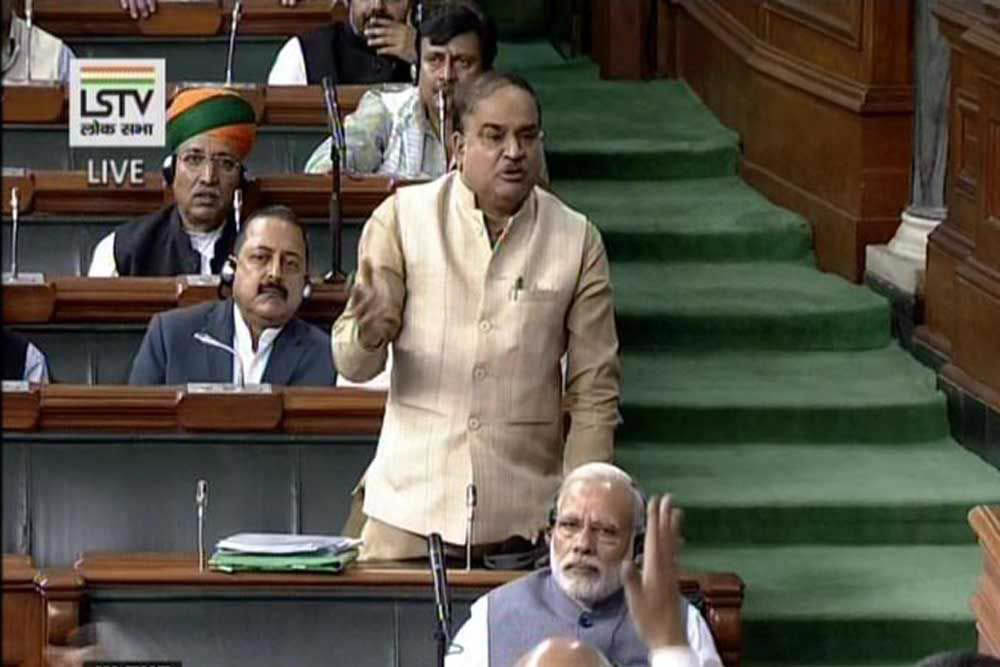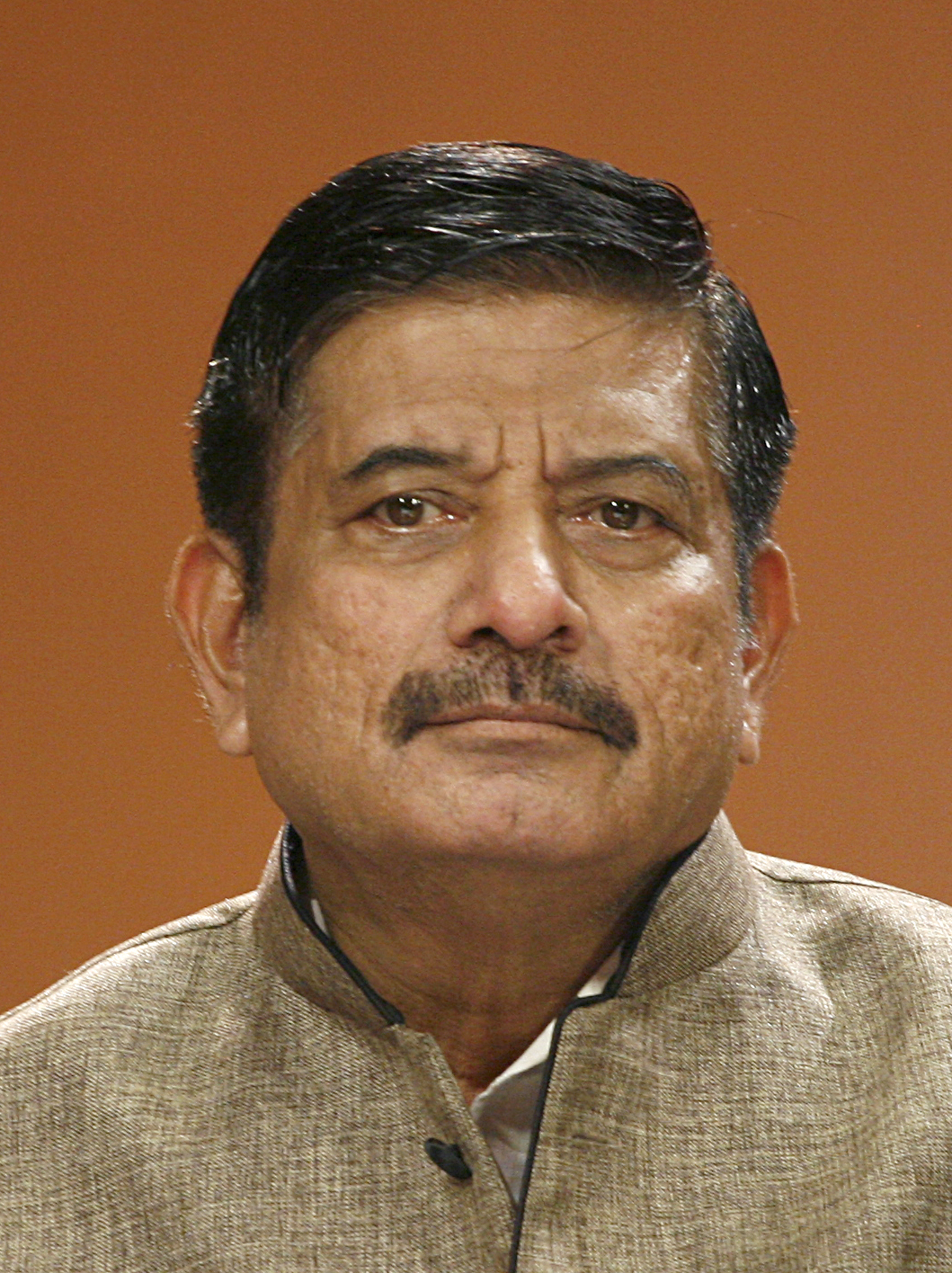
The unprecedented tumultuous winter session of parliament greatly disappointed citizenry of the country, denting the image and the utility of the parliamentary institution. The first citizen of India, President Pranab Mukherjee, felt agonised and in distress made an appeal, politely warning the law makers: “For God’s sake, do your job. You are meant to transact business in parliament. Disruption of parliament is not acceptable at all.”
Delivering the Defence Estate Day Lecture 2016 on “Reforms for a stronger Democracy”, the president said people send their representatives to parliament to work for the country and not to agitate. He said he was concerned that disruption of parliamentary work has become a “practice”. Dharnas can be organised anywhere else, he said, and urged MPs to debate and discuss issues of public importance in parliament.
Veteran parliamentarian and BJP stalwart LK Advani, too, criticised MPs for holding up parliamentary proceedings. He was distressed by the dysfunctional parliament and contemplated resigning.
Parliament is a law making body. The government becomes answerable and accountable to parliament. The opposition is given the greatest opportunity to grill the government on the floor of the parliament. The parliamentary privileges enable the lawmakers to speak fearlessly on any topic of public importance without the risk and fear of prosecution for defamation. It is through the parliamentary debates that the public will come to know about the integrity of the actions of the government, as well as about the efficiency of the opposition.
The speaker/ deputy chairman of both the houses of the parliament hold highest constitutional positions and are responsible for orderly conduct of the parliamentary proceedings. The Rules of Procedure and Conduct of Business in Lok Sabha does give sufficient teeth and authority to the speaker/deputy chairman to effectively control the disruption and ensure orderly debates and discussions.
Rule 349 stipulates and regulates the conduct of the members in the house. Rule 349 (II) declares that a member shall not interrupt any member while speaking by disorderly expression or noises or any other manner.
Unruly conduct outside parliament or assemblies would make the lawmakers liable to criminal prosecution. However, legislators indulging in such acts on the floor of the house go scot-free.
Rule 349 (IX) declares that members shall not obstruct proceedings, hiss or interrupt and shall avoid any running commentaries when another member is speaking. Similar rules are also enacted for the proceedings of the Rajya Sabha and the state assemblies.
The speaker does not have individual power under Rule 374 & 374 (A) to suspend a member which is to be done only by a motion and voting by the house. But under Rule 373, the speaker, if he or she is of the opinion that the conduct of any member is grossly disorderly, may direct such member to withdraw immediately from the House, and any member so ordered shall do so forthwith and shall remain absent during the remainder of the day’s sitting.

The telecast of the proceedings of Rajya Sabha and Lok Sabha disclosed that 10-15 members of the opposition were rushing into the well of the house raising the slogans almost every day. Similarly, 10-15 members of the treasury benches raised slogans on the penultimate and concluding day of the parliament, obstructing the proceedings. Had the speaker/deputy chairman exercised the power under Rule 373 directing the obstructing member to withdraw and remain absent for the day, the paralysis of the proceedings of the parliament could have been avoided.
The moot question would be whether the provisions of IPC & PDPP Act become non-operative for criminal acts done on the floor of the house, and should members enjoy immunity in violation of the Article 14 and the rule of law?
The concluded parliamentary proceedings of 15th Lok Sabha witnessed an ugly scene of a member using a pepper spray to disrupt the proceedings in February 2014. Very recently, on December 20, it was reported that a member of Tripura assembly forcibly took away the mace of the speaker and ran out of the house. State assemblies have also witnessed free-for-all fights and riotous situations wherein MLAs have damaged tables, chairs and mikes in the house. Such a conduct outside parliament or assemblies would make these lawmakers liable to criminal prosecution. However, legislators indulging in such acts on the floor of the house are getting scot-free.
Should such acts on the floor of the house be immune from criminal prosecution?
Section 4 of the Indian Penal Code, 1860, declared the horizons of its “extra- territorial operation”. And there is little doubt about the application of provisions of IPC to the crimes done within the territorial limits of the country.
The damage to public property is made punishable under Prevention of Damage to Public Property Act, 1984, (PDPP Act) for a period upto five years and fine.
The parliament and the legislatures have sole prerogative of taking action against the erring members by a motion, moved and voted in the house.
The said procedure is so ineffective that such a motion would never be moved and voted—there are no precedents to that effect. The moot question would be whether the provisions of IPC & PDPP Act become non-operative for criminal acts done on the floor of the house, and should members enjoy immunity in violation of the Article 14 and the rule of law? The need arises for the rules of procedure of parliament and the legislatures to be amended, empowering the chairman of Rajya Sabha and Speaker of Lok Sabha as the competent authority to deal with such crimes and to hand out punishment in accordance with law of the land. Similar amendment needs to be made for the state assemblies for trial of the offenders to uphold the rule of law.
Lead picture: MPs of all opposition parties wearing black band holding a demonstration in front of the Gandhi statue at Parliament house in protest against the demonetisation. Photo: UNI



had this procedure followed earlier bjp would have been vanished party in the 90’s itself. they shouted and disrupted parliament sessions after session and get attracted to it. like dravidian parties of tamil nadu who cherish in the college union elections and attracted many college students especially in pachchaiyappa’s college and got power have banned elections and political movements in colleges and have taken strong action against those who involved in college union since they want no other person from college emerge as their opponent and capture power. like wise it is the propaganda of bjp and co and their fear that opposition parties will be more familiar than their party and their ideology.
Comments are closed.